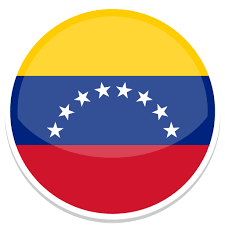Content

When investors buy shares on the open market, however, funds go to the investor selling them. For example Company A started with a $100,000 investment from the sole owner. In the beginning, the owner’s equity account is equivalent to the owner’s investment.
For an investor, stock is synonymous with equity, which represents ownership. For a business, shareholders’ equity is a major item on the balance sheet and represents the difference between the total value of assets and total liabilities. Market value of equity may be substantially different than the value of the shareholders’ equity account on the balance sheet. With respect to businesses, stockholders equity (or owners equity) is the value of assets a company has remaining after eliminating its liabilities. For an investor, stock and equity are synonymous terms because stocks represent equity ownership in a company. Assets, liabilities, and shareholders’ equity are items found on the balance sheet.
AccountingTools
The balance sheet also indicates that Jake owes the bank $500,000, creditors $800,000 and the wages and salaries stand at $800,000. Unlike in a sole proprietorship or partnership, everything does not belong to you or you and your partner in a corporation. Shareholders’ equity shows you how much money is available for distributions to shareholders after deducting liabilities. Because liabilities must be paid off first, they take priority over owner’s equity.
- For example, a partnership of two people might split the ownership 50/50 or in other percentages as stated in the partnership agreement.
- Owner’s equity is calculated as the total value of a company’s assets minus the company’s liabilities.
- Find here the proven principles and process for valuing the full range of business benefits.
- Equity on a property or home stems from payments made against a mortgage, including a down payment and increases in property value.
- Perhaps the most common type of equity is “shareholders’ equity,» which is calculated by taking a company’s total assets and subtracting its total liabilities.
IT systems, vehicles, machinery and other assets sometimes come with hidden costs that exceed their purchase price. Learn Total Cost of Ownership Analysis from the premier on-line TCO article, expose the hidden costs in potential acquisitions, and be confident you are making sound purchase decisions. The Balance sheet always «balances,» whether the firm’s financial position is excellent, or terrible. The balance holds because double-entry principles and accrual accounting ensure that every change to one side brings an equal, offsetting change on the other side. Equity means that you have leftovers from your business’s activities after doing your tax and deductions. This can get you an advantage in benefiting from an expansion loan from a lender.
How Shareholder Equity Works
Owner A will receive 70% of the total business equity ($140,000), while owner B will receive 30% of the total business equity ($60,000). The statement of owner’s equity is meant to be supplementary to the balance sheet. The document is therefore issued alongside the B/S and can usually be found directly below (or near) it. Now let’s say that at the end of the first year, the business shows a profit of $500. This increases the owner’s equity and the cash available to the business by that amount.
You should consult your own professional advisors for advice directly relating to your business or before taking action in relation to any of the content provided. Liabilities include amounts of money that a business owes to lenders, suppliers, employees, or the tax office. It doesn’t tell you what the business would sell for because you can’t know that until you Bookkeeping & Payroll Services at a Fixed Price negotiate with a buyer. But it tells you the book value – or net worth – of the business, which can be calculated at any time. Only sole proprietor businesses use the term «owner’s equity,» because there is only one owner. The articles and research support materials available on this site are educational and are not intended to be investment or tax advice.
What is private equity?
All financial statements are closely linked and supplemental disclosures are meant to ensure there is no misunderstanding from investors. Virtually every transaction your business makes has an impact on equity. Sales earn money and add to your assets, expenditures deplete assets and may increase liabilities. Owner’s equity is what a business would be worth after collecting all the money it’s owed and settling all its debts. It can be used as a starting point for valuing your business when you want to sell, although it’s no guarantee of what the final sale price will be. If you own a house worth $300,000 but you have a $120,000 mortgage against it, your equity is $180,000.
Is owner’s equity a capital?
The fund invested by the owner in the business or the net amount claimable by the owner from the business is known as the Capital or Owner's Equity or Net Worth.
Retained earnings are usually the largest component of stockholders’ equity for companies operating for many years. The only ways to increase the amount of owners’ equity are to either convince investors https://simple-accounting.org/bookkeeping-for-llc-best-practices-and-faqs/ to invest more funds in the business, or to increase profits. Contributed capital in both categories can thus flow company and add to Owners equity at the company’s initial public stock offering (IPO).

 $
$
 Bs.
Bs.